EPISODE 904: THE TWELFTH SON OF THE LAMA
Also, I’ve always wanted to meet the Lonelier Island.
POP CULTURE SPIRIT WOW
Hi and welcome Pop Culture Spirit Wow! I’m your host Jim McDermott, coming to you from the wilds of New Jersey, where it is not so much cold as it is that special miserable kind of wet, just to help you remember we’re not out of the woods yet.
It’s been a weird and wacky week. Let’s get into it!
THE WOWND UP
On Tuesday a lot of the world woke up to discover that the Academy of Motion Pictures and Arts (aka 5 Guys, apparently) had snubbed Greta Gerwig’s direction and Margot Robbie’s performance as Barbie in their nominations for Oscars. Gerwig, who also co-wrote the film (and is nominated along with husband Noah Baumbach for doing so), is the first female director to ever have a film make a billion dollars worldwide, but you know, she’s only done it once. The film and Robbie’s performance also received widespread critical praise for transforming what was a ridiculous, cash-grab concept into a tender story that spoke profoundly to the experiences of women (and also, based on my in-theater ugly-crying, myself). In what seems like reality imitating the worst aspects of art, the same Academy which ignored Robbie nominated her co-star Ryan Gosling for his performance as Ken.
Obviously, we’re not dealing with a monolithic institution here; the Academy does not vote as a block, and it has certainly been trying to diversify itself in recent years as a body. But somehow most years we still seem to get these very ugly kinds of oversights that make you wonder what’s going on over there. (And I just want to say, if they need an exorcist—and I kind of think they might?—I know a guy.)
In much happier news, this week at Sundance a new documentary about Christopher Reeve, Super/Man, was sold to Warner Brothers Discovery for $15 million. The film apparently follows Reeve both in his career as Superman, and later after his accident as he’s fighting to find a cure for spinal cord injuries. At this point there’s a whole generation that probably has no idea who Christopher Reeve is (God it hurts to say that), let alone the incredibly courage he shown in the face of life after paralysis. But how lucky are all of us to get this chance to meet him?
Meanwhile in South America my own personal hero, my dentist, is about to travel by ship along with her partner and family to Antarctica. My initial reaction was, Cool, penguins! Then she told me the waters between South America and Antarctica are so turbulent, you can only really get to Antarctica by way of one passage known as “Drake’s Passage.” And even in that one area, the waves can get higher than 40 feet. Check this out:
Apparently boats make it all the time; also they’re called ships. Nevertheless, the idea that she and her family are going to make that trip twice, once on the way in and once on the way out, in order to swim with the polar bears (or whatever) just amazes me.
“THE WORST JAZZ CLASSIC,” SAYS THE NEW YORK TIMES
One of the things I find thrilling about the age we live in is its constant cultural reassessment. In the wake of #MeToo, #BlackLivesMatter and other social movements of the last 20 years, we find ourselves seeing old work in new ways, sometimes radically so. John Hughes was an enormous part of my childhood pop culture experience, but try going back to his films now. His take on women—almost entirely teenagers—is just creepy.
Some people will label such reevaluations as “woke”—which usually really means, to quote one of the world’s most famous villains, “Why so serious?” I’m not opposed to that question, but personally I find reevaluations are often really liberating. Sometimes we face up to past assumptions that we’ve grown out of (or need to); other times we discover new layers of meaning in something we thought knew. One of my favorite theologians, David Tracy, defined a classic as something that is “superabundant” in meaning, i.e. you can read it or watch it again and again and keep discovering new things. Reevaluation at its best is about plunging back into a classic text and enjoying the surprise of a new journey.
On Saturday the New York Times released a piece about Gershwin’s “Rhapsody in Blue” that intended to offer its own critical reevaluation. The title said it all: “The Worst Masterpiece: ’Rhapsody in Blue’ at 100.” A lot of what followed was an attack on the song for being popular and optimistic. “It is easy, and accurate, to call ‘Rhapsody in Blue’ naïve and corny,” the writer opines. Or later, “If the piece had been less successful, perhaps more could have been done to build on it. Instead, it has clogged the arteries of American music.” People estimate it as better than Duke Ellington when clearly it’s not, the writer goes on. (Why can’t they both be incredible?) “It’s also the best cheesecake,” he writes, or something else attractive yet unhealthy.”
In fact buried within these very punchy flourishes is a thoughtful point about Gershwin’s use of Black material in Rhapsody without acknowledgement, and the effect that had on the field of jazz (through no fault of Gershwin’s own). And think that’s really interesting. The author suggests one corrective would be to support and celebrate the work of some of Gershwin’s Black contemporaries and predecessors, which is of course a great solution. Personally, I’d also be fascinated to see productions of “Rhapsody” that find ways to tease out the Black songs and composers which lie within it, so that we hear Gershwin’s indebtedness. The point, I think, should be both to bring out the hidden figures that have been displaced, and to make our relationship with Gershwin more complex.
Sean Hayes delivered a masterful rendition of the piece in his performance as pianist Oscar Levant last season in the play Good Night, Oscar. I love it for the ways it radically changes tempo, allowing us to experience the piece in a different way. The writer has little time for Levant, who he thinks had no idea how to play the piece. But for me it’s exactly the kind of “old item made new” that I love about cultural reassessment.
MY OWN PERSONAL GAME OF CATCHPHRASE
As I’ve written here many times before, I think at its best pop culture is liberating. It gives us new ways of seeing the world and ourselves, giving us permission to accept and love ourselves, to face and name uncomfortable truths; it helps us to laugh, to risk and to dream.
Obviously the story and the characters lie at the heart of this project. But an element of pop culture that I find often carries that liberating work forward is the lines of dialogue that we refer back to. How many times have you found yourself quoting from a show after you’ve seen it, or suddenly discovered a line floating through your head at some random point in a day?
Comedies are especially ripe for this kind of integration, but they aren’t the only genre that generates this kind of instant memorization. When I first entered the Jesuits I met a group of other young Jesuits from California who were always quoting Silence of the Lambs. (“It puts the lotion on itself or else it gets the hose again,” they’d say, almost like a chant.) What’s up with that? We would wonder. Turns out their novice director was obsessed with the film, and so it became part of their culture.
(I will leave it to you to speculate as to state of that culture, ha ha ha.)
For me Star Wars has always been a prime harvesting zone for words of wisdom. But lately I’ve noticed material moving through my mind from other sources, some of which inspires me, but a lot of which just helps me understand and have a sense of humor about my life.
Here’s my current top 5 list. What’s on yours?
You’re chasing Michael. Michael’s chasing Kimmy. Who’s chasing you?
For me, maybe the greatest moment from 1990s romcoms is this scene at the climax of My Best Friend’s Wedding, when Julia Roberts, having just kissed her best friend Michael (on his wedding weekend) is chasing after him, while he chases his fiancé Kimmy, who has seen all this and is not having it. And at the glorious key moment of that scene, Jules’ gay bestie George, played by the great Rupert Everett, lays out the reality.
I find this such a useful line when dealing with rejection. Basically, face the truth.
This is ridiculous, what am I doing here, I’m in the wrong story.
The Baker’s wife says this in Into the Woods just after she and Prince Charming have an unexpected moment in the woods. I think of it anytime I find myself in a weird new situation, which these days is pretty much every day. (But slightly unlike the Baker’s Wife, usually when I do I’m sort of delighted to have somehow gotten there.)
Maybe I just wasn’t meant to have children.
Also from Into the Woods, this line from the Baker after his wife has died has become a key idea for me. Any time I come upon some kind of massive obstacle, especially a personal one, I find myself thinking it, and often texting it to friends.
As much as I enjoy how it serves as shorthand for “Things are not going great,” I think I also love it because in the show it’s followed immediately by the spirit of the Baker’s Wife telling him, “Don’t say that, of course you were meant to have children.”
No doubt that’s what I really want to hear, most of the time.
I rewrote the rewrite./I sort of enjoyed it./I threw out the story./I’m meeting my agent.
This line from Merrily We Roll Along probably makes no sense to anyone but me, but I think about it all the time. It’s from a song near the end of the show where the three main characters are just beginning their careers (the show takes place chronologically in reverse). In a number of the song’s sections, the happy trio each reveal their latest setback or advance while the others encourage or challenge them. I love it because it’s all about being at the beginning of things as an artist in New York, and the roller coaster that comes with hustling to build a career. (Also, I feel like I have a number of friends in similar positions, and really at times our conversations really are mirror images of that song.)
So I’ve got that going for me, which is nice.
I think of this line from Caddyshack anytime I want to find a little bit of optimism or humor in an otherwise bad situation. (Or I want to see if the people I’m talking to know Caddyshack, which almost nobody does.)
THIS IS YOUR WEEKLY REMINDER THAT WE COULD ALL USE A TRIP TO CICELY, ALASKA STAT
As divisions within the country got worse and worse in the last decade of this century, one thing that you’d hear a lot is that the sitcom Parks & Recreation was the show we should all be watching. Built around a small town Indiana’s parks and recreation department, it featured people on both ends of the political spectrum (and a lot of others on whole spectrums) who nonetheless loved and respected each other.
Earlier this month Amazon Prime started streaming all six seasons of the 1990s dramedy Northern Exposure, which like Christopher Reeve is almost certainly a foreign concept to people in their 20s or maybe even 30s, despite the fact that at its time the show was kind of revolutionary.
Creators Joshua Brand and John Falsey had already created the groundbreaking medical show St. Elsewhere, which established the foundations for the modern medical drama on which ER and Grey’s Anatomy were built. This was all happening during the original era of the long form serialized shows that began with Hill Street Blues in 1981, Elsewhere in 1982 and L.A. Law in 1986. Where shows like Blues and Elsewhere were first and foremost dramas that by virtue of their commitment to exploring the humanity of their characters inevitably included some very funny moments, too, Exposure instead led with the comedy, its main character a New York City Jewish doctor who finds himself forced to work in a small Alaskan town filled with a cast of zany characters whose lives and choices he is completely baffled by.
The show could still be quite moving, for the same reason that Elsewhere was funny: if you’re invested in the humanity of your characters, there will be sad and touching moments. But in the line of the David E. Kelley shows of the 1990s like Picket Fences or Ally McBeal, Exposure was much more gentle and tender than those harder dramas, its intuition more that humanity in all its forms is worthy of appreciation.
Over the weekend I had the chance to sit with friends and rewatch a lot of the first season (which to my surprise was only 8 episodes; season 2 is only 7). And I was shocked to discover just how relevant it is today. The show is filled with casual racism, misogyny, the ugliest and most urban kinds of entitlement, and huge political divides, with businessman former NASA astronaut Maurice Minnifield serving as a sort of proto-Trump figure, all money and bullying. (He even has a signature hat.)
But what’s fascinating is that while the show is aware of many of these elements—unlike so many 1990s shows, it allows them to go on without the kind of immediate jump down your throat challenge you’d see today. And I think that comes out the creators’ underlying belief that people are more than the worst parts of themselves. Small town people without a lot of world experience nonetheless have a lot of wisdom to share. Loud mouthed selfish New Yorkers also truly care. Even homophobes have other meaningful insights.
Because the show believes in the underlying goodness of people, it also believes that they are capable of change. Sometimes the inciting incident is a confrontation; but a lot more of the time it’s just them bumping up against their flaws. A character hears themselves say horrible things enough, and they begin to see how ugly and ill-fitting those opinions are.
These characters are living in a much sleepier, less high stakes environment than our world. And in many ways it’s a sweet fairy tale of a show. But still, you wonder if the creators aren’t onto something about how growth happens, and the true goodness of our humanity.
OVERHEARD IN THE THIRD BALCONY
Keep your ticket. The bar next door is offering 20% drinks after the show.— Every audience member after seeing the tragic alcoholism musical Days of Wine and Roses.
(The bar next door really is offering 20% off drinks. It’s a pretty tough show.)
If this show doesn’t transfer to Broadway, we riot.—Every audience member everywhere after seeing Once Upon a Mattress at City Center.
What the hell’s a Lempicka?
A couple weeks ago I released this interview with the composer/piano player Jim Merillat. And a lot of the interview was about his work at Marie’s Crisis, which is a community that means a lot to me. A lot of the interview was behind the paywall, but I’d hate to see anyone who loves Marie’s be prevented from reading the piece, so I’ve pulled down the paywall for the piece.
Like everyone who works at Marie’s, Jim relies on tips. If you enjoy what you read, you might drop him a couple shekels. He’s on Venmo @James-Merillat-2.
And as always, I’ll be back later this week with some more fun stuff for subscribers. If you haven’t already, feel free to subscribe below! And if you have, thanks for supporting my work!
MOMENT OF WOW
I don’t know Dakota Johnson’s work well, but Lord does she crush this.
See you soon! Have a great week!





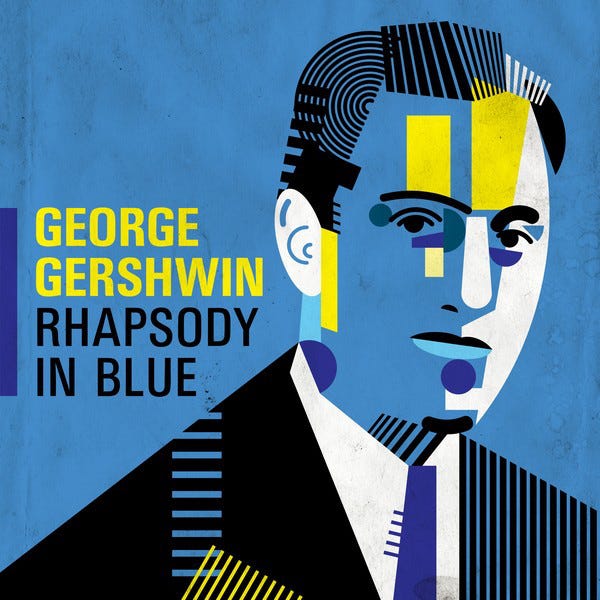
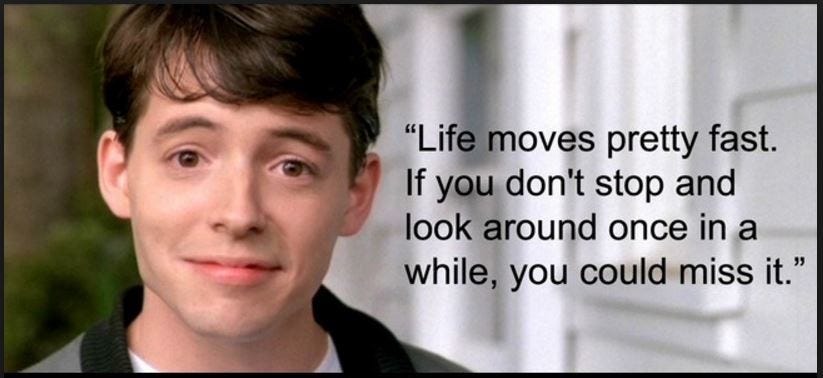
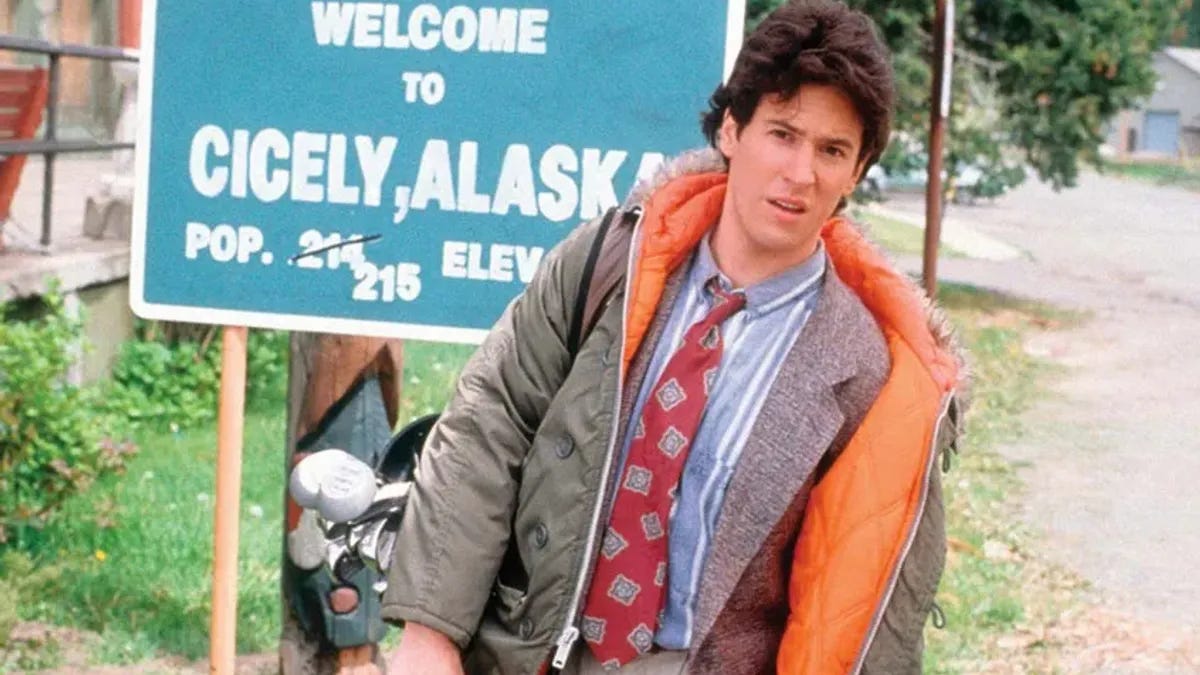
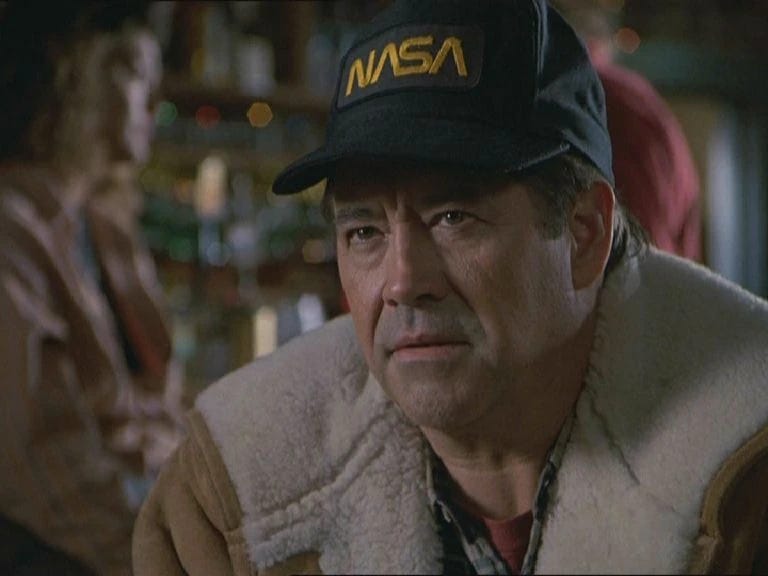
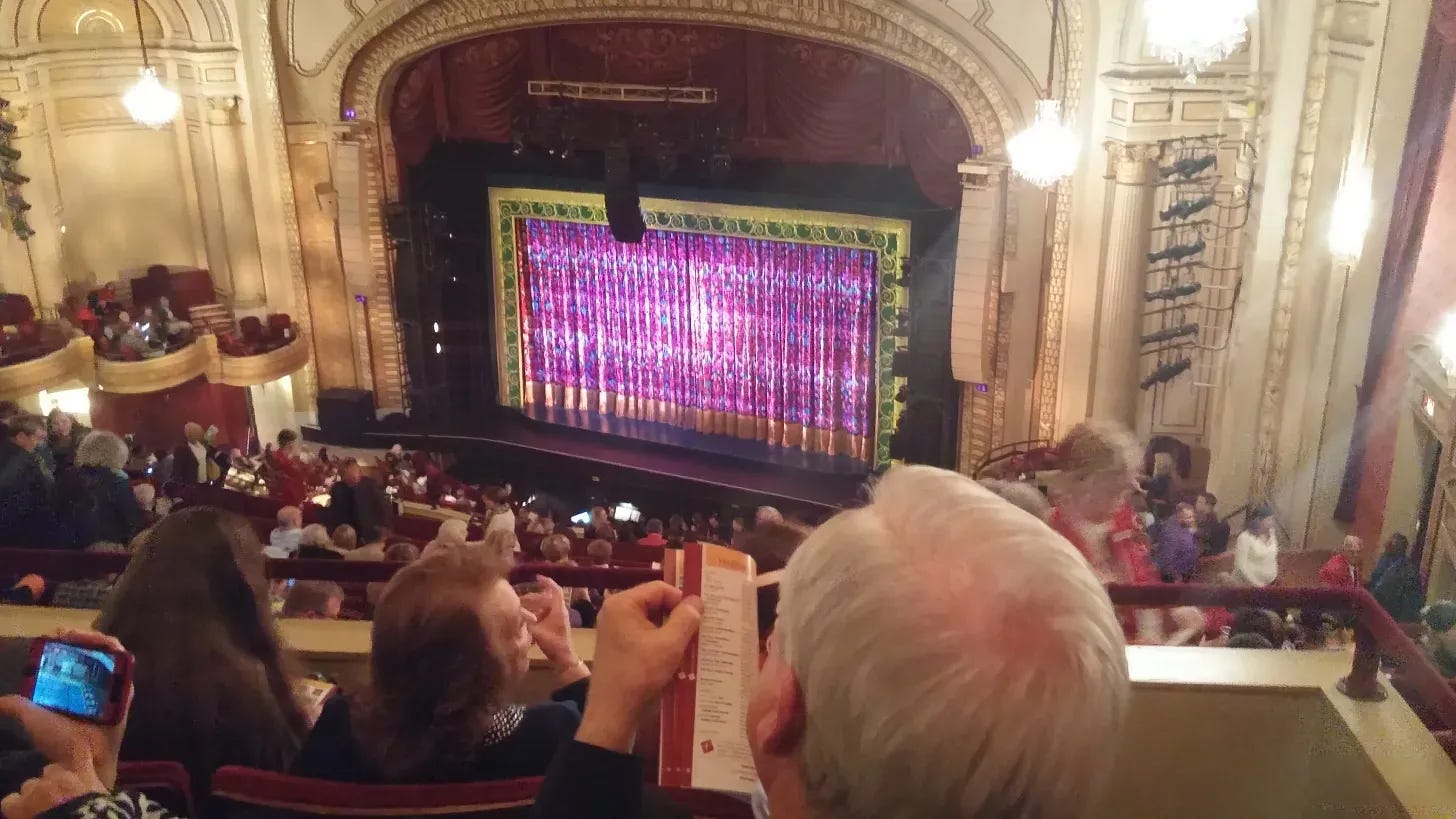
Interesting commentary on the provocative piece about "Rhapsody in Blue," but did Gershwin really never "acknowledge" that he was drawing upon techniques associated with Black musicians? Maybe he didn't do enough podcast interviews to get around to it?